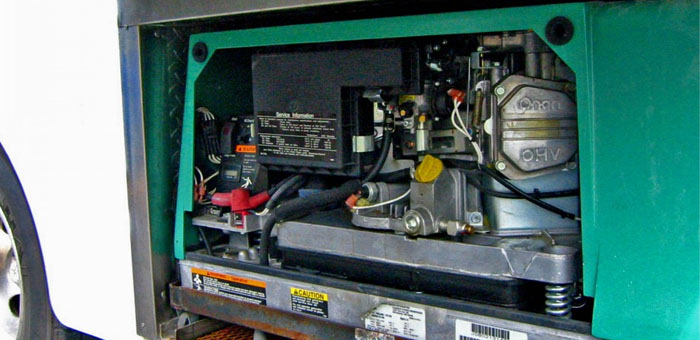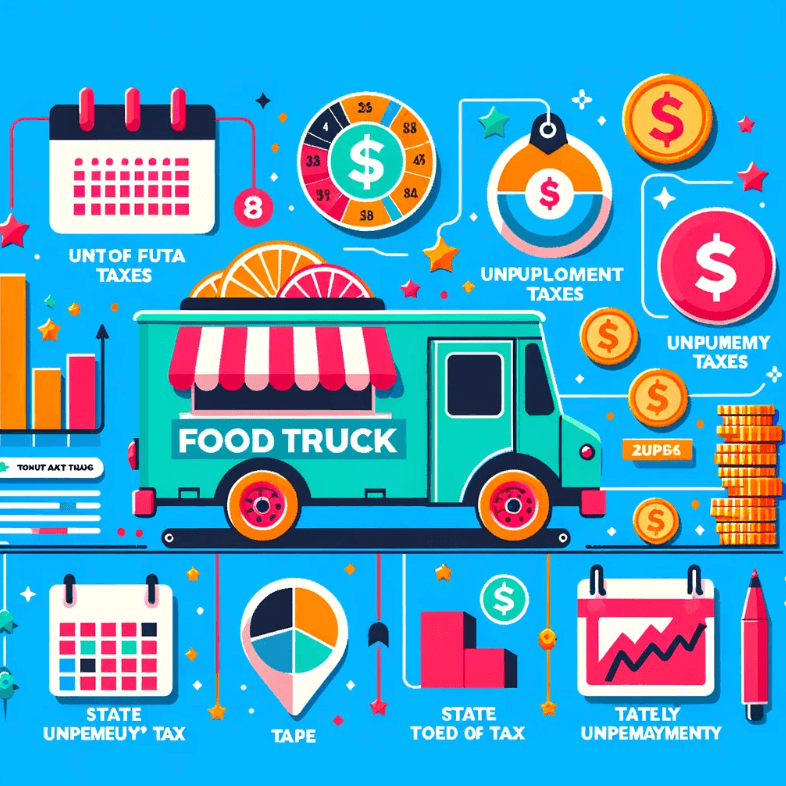Portable electric generators provide power to almost all food trucks on the road today, but if improperly installed or operated, food truck generators can become deadly. Follow these food truck generator safety tips to keep your staff and customers safe.
Food Truck Generator Safety Tips
To keep yourself, your employees and your customers safe, The Electrical Safety Foundation International (ESFI) and Consumer Product Safety Commission (CPSC) offers a helpful list of recommendations and taking the following precautions:
- Contact a licensed electrician to install your food truck generator to make sure it meets all local codes. Do not connect generators directly to your mobile kitchen equipment without an appropriate transfer switch installed.
- Make sure your food truck generator is properly grounded.
- Inspect the generator regularly and contact the nearest authorized dealer for parts needing repair or replacement.
- Do not overload the generator. A generator should be used only when necessary and only to power the essential equipment or appliances on your truck.
- Never operate the generator in enclosed or partially enclosed spaces. Use carbon monoxide detectors in nearby enclosed spaces to monitor levels. Generators can produce high levels of carbon monoxide very quickly, which can be deadly.
- Use a ground fault circuit interrupter (GFCI) to help prevent electrocutions and electrical shock injuries.
- Turn off all appliances powered by the generator before shutting it down.
- Keep children away from portable generators at all times.
- Electricity is a powerful tool. It can also be a lethal hazard. Better safety standards have reduced electrical hazards that cause deaths, injuries and property damage. But good safety habits are still the best prevention against electrical hazards.
- Do not store extra gasoline for the food truck generator in your vehicle. Outside of the fact that gas fumes can cause headaches, the vapor from gasoline is heavier than air and can travel invisibly along the floor. It could be ignited by a pilot light or other source of flame, such as an electric spark.
- Always have a fully charged, approved fire extinguisher located near your food truck generator.
- Before re-fueling, always turn the generator off and let it cool down.
- Read the owner’s manual before you operate the generator. If you’ve lost the manual, contact the manufacturer for another copy. You can often download the manual from a manufacturer’s Web site. Keep the owner’s manual with the generator in a zip-lock bag to keep it dry.
- Many generator parts are hot enough to burn you during operation. Stay away from the muffler and other hot areas.
Even More Safety Tips
- Proper Placement: I’ve seen too many newbies park their generator right under their serving window. Big mistake. Those fumes can sneak into your truck and make your crew sick, not to mention the risk to your customers. Keep that generator at least 10 feet away from your truck and any area where people gather. It’s not just about following the rules; it’s about keeping everyone safe.
- Ventilation: Even outdoors, your generator needs to breathe. If it’s tucked away in a corner surrounded by stuff, it’s going to overheat, and that’s trouble. Make sure there’s plenty of air circulation around it. Overheating can shorten its life or, worse, cause a fire.
- Fuel Safety: I’ve had a close call with this one. Rushing to refuel a hot generator between the lunch and dinner rush, and I nearly caused a fire. Let it cool down first. And keep your fuel stored safely away from the generator, in proper containers. A spill during refueling on a hot engine can ignite in seconds.
- Regular Maintenance: Treat your generator like the lifeline of your business, because it is. Regular maintenance prevents breakdowns at the worst possible times. I schedule check-ups during downtimes, so I’m never caught off guard. A generator dying in the middle of a lunch rush is a nightmare you don’t want.
- Electrical Safety: Water and electricity are a dangerous mix. I’ve rigged a small canopy over my setup to keep everything dry, even when the weather disagrees. And using the right extension cords? Non-negotiable. The wrong kind can overheat and cause a fire. Learned that one from a fellow food trucker’s mishap.
- Fire Extinguisher: Having a fire extinguisher and not needing it is infinitely better than the reverse. Make sure it’s rated for electrical fires. And yes, everyone on my team knows how to use it. We do drills. It might seem over the top, but in an emergency, hesitation can cost you everything.
- Noise Levels: Generators are loud, but your customers’ comfort matters. I chose a model that’s as quiet as possible and positioned it so it’s not blasting noise directly at my seating area. Keeping on good terms with the neighbors and local businesses is key to finding good spots to park.
- Secure It: After hearing horror stories of stolen generators, I invested in a heavy-duty chain and lock. It’s secured whenever it’s outside, especially overnight. Replacing a generator unexpectedly can put you out of business for days, if not longer.
- Know the Manual: Every generator is a bit different. I made the mistake of assuming they were all the same and nearly ruined my first one. Now, I know my generator’s manual front to back. It saves time and money in the long run.
- Emergency Plan: We’ve had a couple of scares, nothing major, thankfully. But those were wake-up calls. Now, we have a clear plan for what to do if something goes wrong, including how to quickly shut off the generator and evacuate safely. It’s posted in the truck for everyone to see.
The Bottom Line
Many festivals and locations will furnish you with power but most food trucks need to run from a generator. Food trucks are becoming a very lucrative business, and the industry is booming. Many people are finding the advantages of starting a food truck business, but one thing every food truck needs is a safe food truck generator.
Personal experience has taught me that taking these precautions isn’t just about following regulations; it’s about protecting your business, your team, and your customers. A little caution and preparation go a long way.




